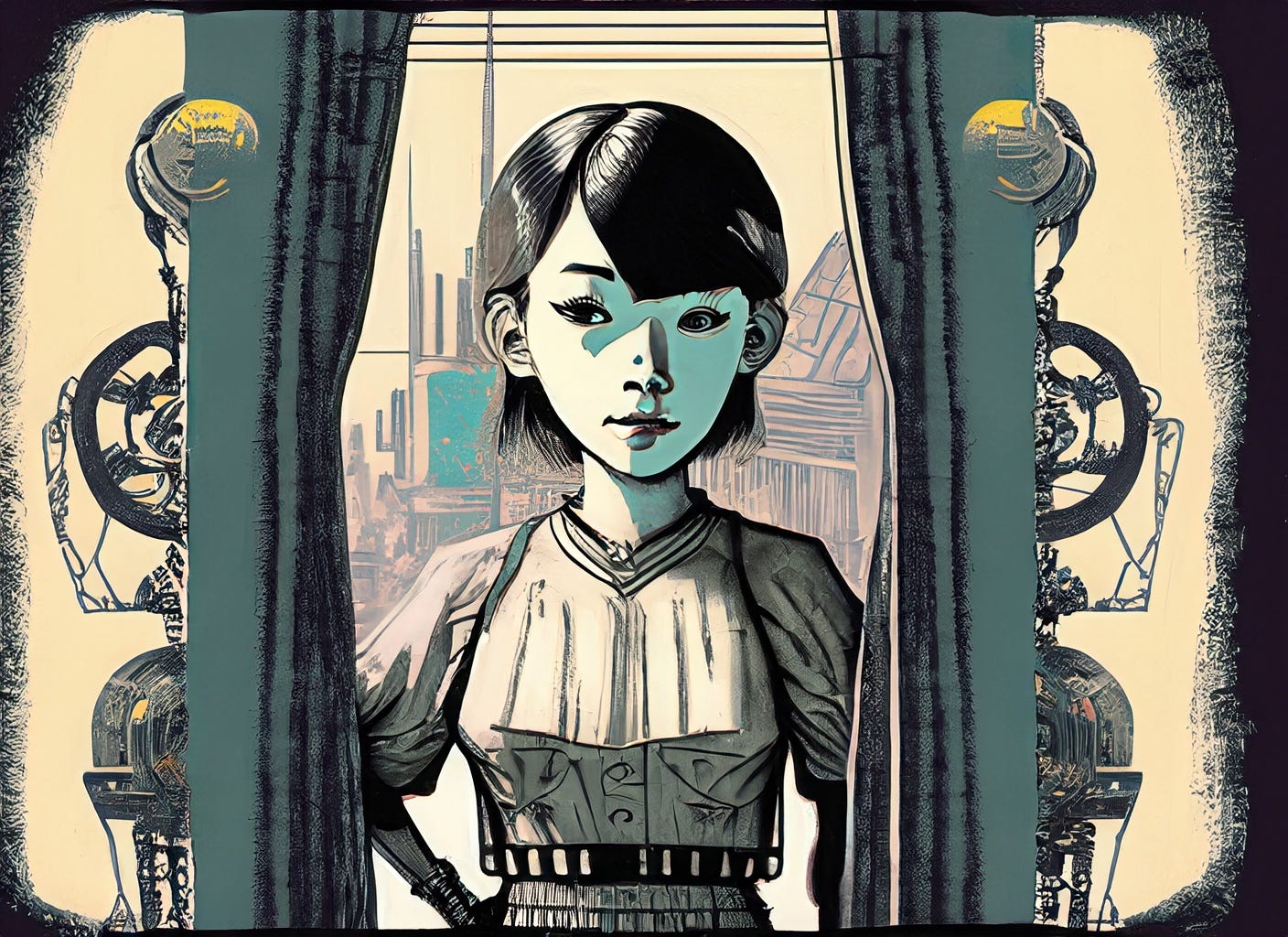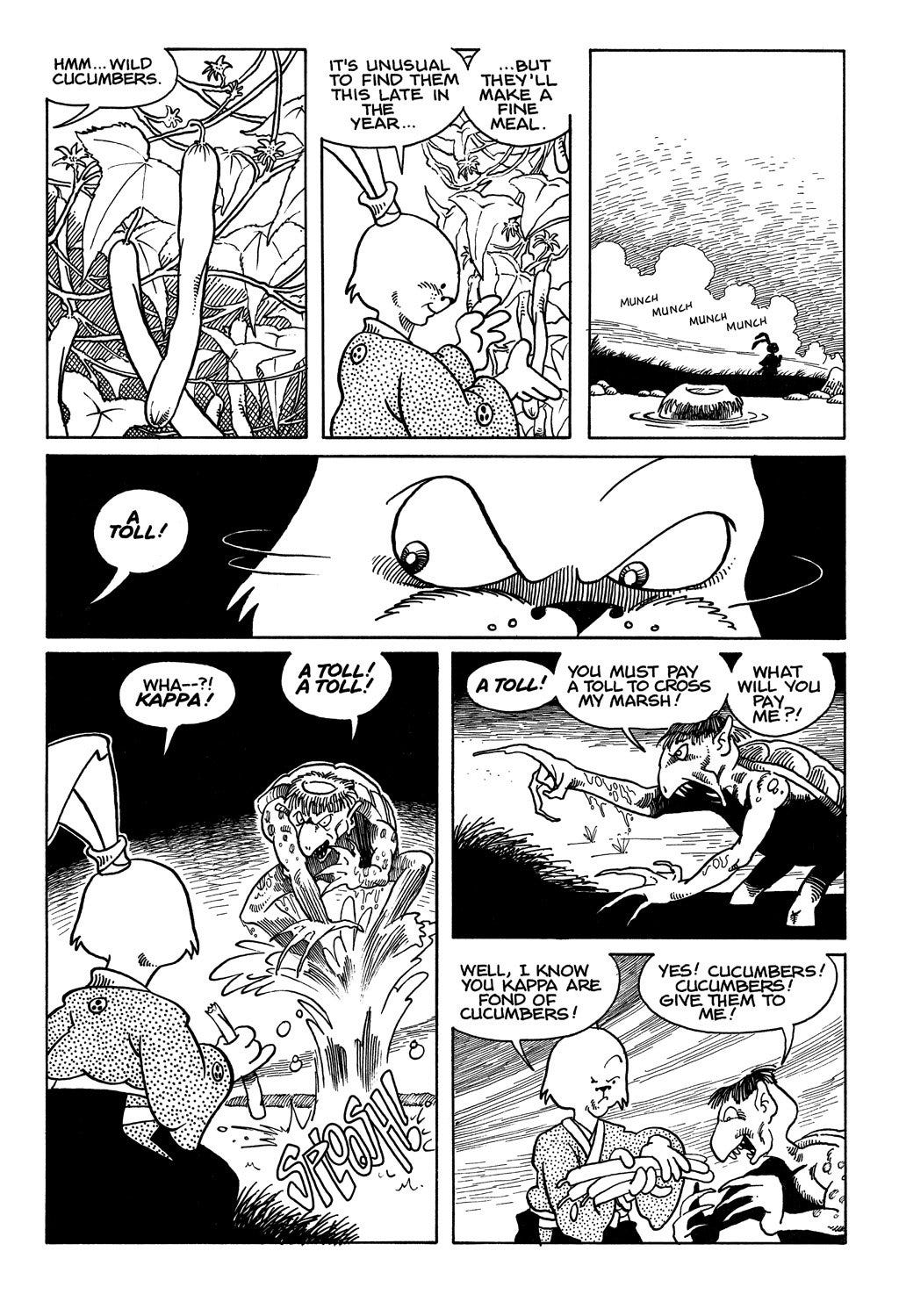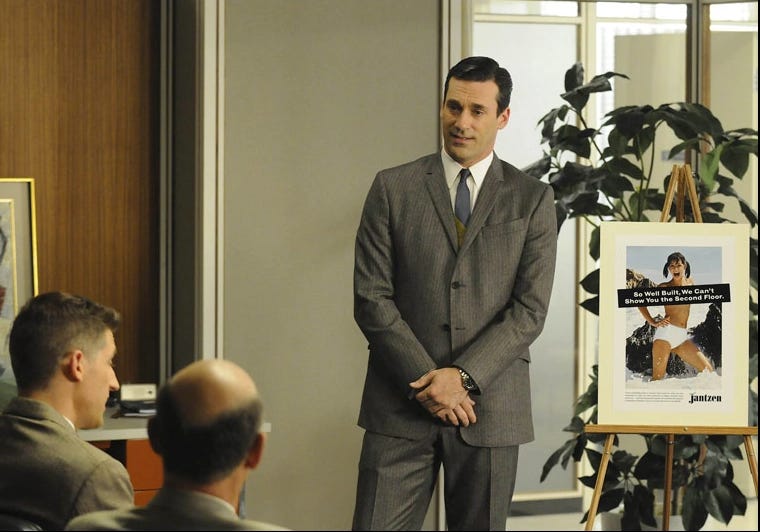Why Storytelling is Crucial for a Personal Brand (With Some Personal Things About Me)
It's important to show your personality and background to your audience
I’m two newsletters down now and I’ve been examining whether I’m taking the right approach with what I’ve been writing. I’m trying to make it useful for you while I muddle through this, and I’m grateful to you guys for being here with me on my journey.
With that said, I’d like to explore why I think storytelling is of paramount importance for a personal brand. Warning: I’m going to talk a little bit more about myself here, but I’ll try and make it clear why it’s something you need to do, too.
First things first:
It’s scary to be real.
If you’re anything like me, exposing your true self and your history is terrifying. You’re letting people see behind the curtain, and perhaps, in this world of social media oversharing, I sound overly fragile or outdated. And while I do still think, for the most part, that it’s better to keep firm boundaries about what to share, I also know that you will never become a truly good writer until you learn to distinguish between the sort of story that actually has substance, and one that merely sparkles.
Picking apart your own history and choosing what story to tell: that’s hard. Choosing to tell the ones with the meat: that’s even harder. Because who cares about the superficial stuff? I mean, seriously, who gives a shit? If you’re not giving your audience sirloin, they’re going to sit there knowing something’s missing. And then they’re going to go find a new restaurant to eat at.
I first had an inkling about this, years ago, when I was talking to an old roommate about my parents.
I was still in art school and I was making some bullshit art. It looked good, but it was absolutely devoid of meaning: they were illustrations about kappas, which are aquatic goblins from Japanese folklore. I don’t quite remember what I was having the kappas do in the drawings, but it was probably some crap about trying to understand the modern world, using them as a proxy for myself, etc, etc.
It was great, except for several things:
I was not even remotely Japanese
I had no specific or deep connection to them. They might as well have been leprechauns
I was expressing only the slimmest, most superficial slice of me, to the point where I can’t even remember now, exactly, what the project was about. Can you imagine Fiona Apple forgetting the circumstances behind one of her albums?
All of this added up to a mediocre art project which was still passable, despite its faults, because I had mastered the art of bullshitting.
If you don’t know how to bullshit, you can go to two places to learn:
The FOH (front of house) at a fancy restaurant
An art school
(I have a lot to say about bullshitting, actually, but I want to say more in another letter because it’s a good story)
Let’s go back to this conversation I was having with my roommate. He was a deeply intelligent guy, and very perceptive. I was still on the wrong train track at that point, but I didn’t know it.
He was asking me what my art was about. I told him it was about trying to understand humans and human society. It was about alienation, kind of. And then at some point (I don’t remember why) I started talking about my parents, and about how I was adopted, and how (occasionally, when they were especially angry with me) they told me that I should be grateful that I was adopted.
This is when he raised his eyebrows and said, “Oh, that’s what you should be talking about.”
And I made a face, waved my hand and said, “Nobody wants to hear about that.”
Now, before we go further (and because my mother occasionally reads my newsletter), I want to be clear that this was a long time ago, and many things have been resolved since then. I’m trying to make a separate point, which is this:
If you don’t feel anything while you’re writing, your audience won’t, either.
Here’s another, more recent story.
A few months ago, I was part of a small group of people in the process of making the straggling journey from one bar to another. I was explaining about my background to someone. This is something that happens quite a lot these days, because even in a crowded, international city like Bangkok, my story is a little unusual, and I haven’t yet figured out how to shrink it all into elevator-pitch length.
This has led to some interesting conversations, but it’s also, just as often, made me feel as though I’m dominating the conversation by speaking about myself too much. Or, worse: that I’m boring everyone by talking about it, and so I rush through it.
The man I was talking to, incidentally, has his own truly bizarre history that he is currently in the process of writing about.
He wanted to know why I wasn’t writing about any of the stuff I was telling him. Why, for instance, was I not writing about the fact that I was returning to the country of my birth, as an adult American? All while not speaking the language? Or having any kind of real safety net?
Why wasn’t I writing about meeting my birth father? And why, for that matter, was I not writing about my adoptive father, the world-traveling, famous-people-meeting journalist?
I told him I wasn’t interested in it, and I didn’t think that I could write something that I wasn’t interested in, even if other people were. That’s because people can sense if you’re interested in your own writing. (I do still think that)
But I was wrong. It’s weird because now that I’ve written all of this down, I can see that I’m still making the same argument that I did years ago — that no one wants to hear about my story, or if they do, I don’t want to tell it because I’m busy making bullshit art or writing fiction about line cooks in Chicago. Because also, what if I tell my story, my real story, and nobody likes it?
What if it’s boring? What if I tell it badly?
What if it’s labeled with (horror of horrors) that most indifferent and damning judgement of mid?
Well … what if it is?
What happens then?
It means exactly what it means. It just means that some people weren’t interested. Some people didn’t care. That doesn’t mean that everybody didn’t. Actually, if somebody didn’t like it, I’m honestly more interested, because I want to know why.
One last story.
The season 4 episode of Mad Men, “Public Relations”, has two plot points that I want to mention specifically.
First: Don Draper, star creative director, gives a boring, guarded interview to a reporter from Ad Age. The result is a stilted, dreary article — a lost opportunity for the Sterling Cooper Draper Pryce agency, which badly needs the publicity.
Second: Jantzen, a swimwear company, wants an ad campaign to sell their new two-piece swimsuits, but they don’t want it to be sexy, and they don’t want to call them bikinis.
Don Draper creates a slightly risque ad campaign for them, which they say they don’t want because they are a “family company.” He then angrily throws them out, saying:
Your competitors are going to keep killing you because you’re too scared of the skin that your two piece was designed to show off.
Do you see the parallel between the two plot lines?
Don Draper is frequently acknowledged to be the golden egg-laying goose for the agency, the superstar ad man. But he portrays himself to the reporter as a humble, Midwestern guy, and tells him that it’s not polite to talk about himself. It’s a ridiculous thing to say to someone after you’ve already agreed to do an interview for them.
And similarly, pretending that a two-piece swimsuit isn’t sexy is ridiculous when it very clearly is. By not calling a spade a spade, as it were, you are doing everyone a disservice. And you’re literally selling yourself short. You’re taking a red-hot Lamborghini, covering it with palm fronds, and pretending it’s a tuk-tuk.
Don Draper, in other words, is a bikini.
At the end of the episode, after Don throws out the Jantzen clients, he immediately calls another reporter and sets up another interview. This time, he sells himself, and he sells the agency.
But … you could also say that he talks about it accurately the second time.
So which is it?
Are you accurate, or are you hiding?
Are you better than you’ve been letting people see?
Are you really using the tools you’ve been given, or are you trying to turn your hammer into a shovel?
Why don’t you just use your hammer?
We won’t get far if we’re too busy trying to hide behind an illusion. It’s much, much easier to connect to people if they feel that there’s a real, genuine person behind the brand.
So what’s your story?







I really like this one! It got me thinking about my own fears on sharing things that not everybody likes and in responding to that, watering down my content. But in reality, it’s good to be polarizing. I don’t want a giant following of people who kinda like my work. I want a solid, smaller group of super fans who fucking love it. They say Steven King wrote each of his books for only one person! Not that I’m comparing myself to Steve… LoL. That’d be tremendously inaccurate.